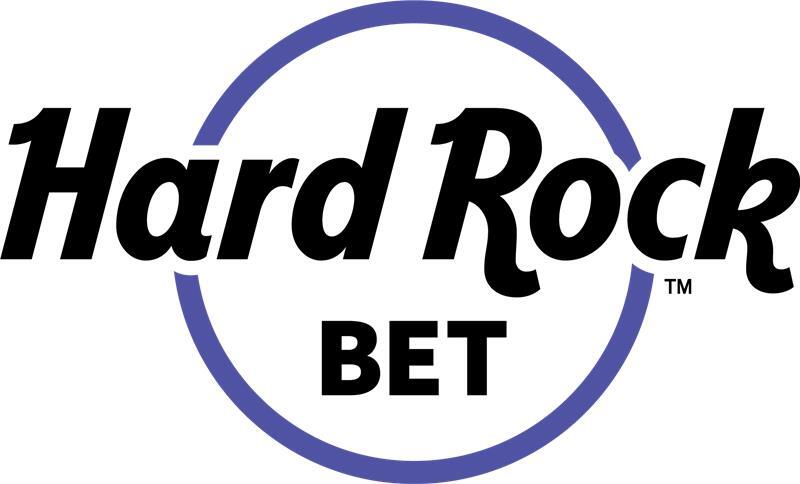VR Casinos in the US
VR casinos in the US are quickly gaining ground, with innovative technologies transforming how players explore online casino platforms. This guide focuses on the basics…
Category Ratings
This page contains references to products from one of our advertisers. We may receive compensation when you click on links to those products. Terms apply to the offers listed on this page. For an explanation of our Affiliate Policy, visit this page.
Learning more about the best VR casinos will help players utilize this technology to expand on standard iGaming experiences.
Introduction to VR Casinos
A VR casino is an immersive, 3D online gambling environment that simulates or goes beyond the typical virtual experience.
US players can use VR headsets and feel as if they are ‘inside’ the casino rather than in their living room. They can interact with the dealers and other players and explore a realistic environment in real-time.
VR casinos are still emerging in the US and signal a giant leap for online casinos. It is still in the early stages, with developers determining how to offer such service options in the US.
What Is a VR Casino?

Conventional online casino gaming typically involves viewing a screen and clicking or tapping controls to play.
With VR, you enter a digital world that simulates the ambiance and environment of land-based casino or fantasy realms. VR elements add depth to the gaming session, with the realism of dealers, tables, and gameplay, all in 3D.
- Live Casino Integration: VR can be integrated with live casino, offering a virtual studio where you can see real dealers and interact as you play blackjack, roulette, and other games. This would take live casino games to another level, providing a more realistic environment.
- Slots & Digital Table Games: Some VR casinos are experimenting with VR slots or stand-alone VR experiences that are not widely available. As new technology is introduced, developers learn how VR can be integrated to upgrade the standard gaming experience.
The Technology Behind VR Casinos

The best VR casinos feature innovative technology, with hardware and software elements creating a seamless gaming environment. Specific elements must come together to ensure a realistic and unique experience.
- VR Headsets
VR headsets are essential to the Virtual Reality experience. Consumer-friendly options like the Meta Quest series and higher-end models that require a powerful PC provide the base for a realistic environment. Pricing ranges from low to high so prospective US players can select option b based on their budget and performance needs. - PC / Mobile Requirements
PCs require a strong graphics card like Nvidia GeForce GTX 1050 Ti or higher or a smartphone able to pair with standalone VR headsets. Not all VR games are cross-compatible, so verify compatibility and the required devices before investing. - Stable Internet Connection
VR experiences also consume more bandwidth than standard streaming. Because of this, players need a reliable and fast internet connection or smooth gameplay. - VR Software & Apps
VR casinos may sometimes require bespoke apps or software from app stores or the casino site. Check that the app is regulated or verified, especially if it will handle real money transactions.
Current VR Casino Games & Experiences
Software developers and operators are focused on offering VR experiences in genres where players seek out unique experiences. Focusing on table games is a prime example of popular current content options.
- VR Poker Rooms: VR poker stands out in this segment, offering realistic avatars and a table presence mimicking in-person play. The actions and motions of the game simulate a real poker-playing experience and bring the game to life with sounds and graphics.
- VR Blackjack & Table Games: Blackjack, roulette, and baccarat are in the early stages of development by software companies seeking to bring the popular table games to life. Meta Quest already offers a blackjack variant and baccarat in beta that explores the classic table games.
- Beta-Phase VR Casinos: VR casinos that exist today are in the alpha or beta stages, with mainstream adoption around the corner. It may take some time, but VR casino gaming will eventually be considered a main industry staple.
VR casinos for US players are niche now, with the technology expected to become as commonplace as standard live casinos. VR is expected to become a standard form of iGaming and offer versatile options like those offered by the traditional industry.
VR Live Casino – The Next Evolution?
Live dealer games are considered the most VR-friendly vertical, with exciting elements and simple controls. Players already are familiar with games such as blackjack and roulette, so it’s easy to begin in the virtual world.
- Immersion & Social Elements: VR allows players to see each other’s avatars, watch the shuffle and deal of the cards, and chat in real time.
- Simulated Physicality: VR can simulate picking up chips, placing bets, and physically pulling a slot lever, which ensures a more realistic experience.
- Realistic Casino Environment: The full 360-degree environment with background music, décor, and virtual bartenders creates an immersive world in which players feel as if they are physically at the casino.
Imagine a world where you can join a VR blackjack table from your living room and chat with players worldwide. This would be a more connected environment where live casino gaming takes on a new meaning.
Potential for VR Slots
Technology and innovation will eventually expand into the slot sector, reshaping how players enjoy reel spinning.
- Beyond a Virtual Slot Machine: Future VR slots could transport players into the storyline of a game or setting, providing interaction in the slot environment. The immersive world would create a brand-new way to explore slot reels.
- Game Developer Innovation: Slot providers may eventually be able to use VR to create interactive game worlds that are far different from standard video slots. Players could utilize various controls and features for in-game play far beyond the typical reel spinning.
VR slots are largely experimental now, but as VR hardware becomes more accessible in the US, developers are more likely to push new boundaries with game creation.
Metaverse & the Future of VR Casinos
The Metaverse can potentially change how players explore casino games online. There is major potential for future gaming endeavors, from open VR worlds to crypto and NFTs.
- Open VR Worlds: Imagine logging into a virtual world where your avatar walks through a digital city. You pass through shops and cityscapes, other players, and eventually enter a lively VR casino. Inside, you can sit at a table, play roulette, and chat with others—all without leaving home.
- Crypto & NFTs: Some of these future casinos might use digital currencies like crypto or even let you buy, sell, or trade virtual items (like NFTs) that hold value in the game world. This would add a new layer of ownership and personalization to the experience.
- Entertainment Options: The entertainment side could also expand. Think of full concert halls, lounges, and social meeting spots built into the same VR platform. The casino would just be one part of a much bigger virtual world, making it feel more like a complete destination than just a gambling site.
But these exciting features also raise serious questions—especially in the U.S. Rules around gambling, crypto, and player safety vary from state to state.
Metaverse casinos would need to follow strict laws, protect players’ data, and ensure that people aren’t gambling beyond their means. Responsible gambling tools, age verification, and licensing must also adapt to this new space.
The future looks exciting, but careful regulation and smart design are key to keeping it safe and fair for players.
Regulation & Licensing of VR Casinos in the US
Like real money gambling products in the US, VR casinos must abide by state gambling rules. This means licensing, player protection, and game fairness are considered.
- Licensing: Operators must have a license to legally offer real-money gaming to US residents. Licensing applies only in states where online gambling is legal.
- Player Protection: VR environments must implement responsible gambling measures, verification checks, and safe transaction protocols. Players must have a safe environment to enjoy gaming.
- Game Fairness: VR games must pass fairness tests and random number generator (RNG) certifications like standard online games. This ensures the games offer fair outcomes with every play.
Always check licensing credentials before exploring VR gambling. VR casinos must adhere to these standards to provide a quality gaming environment.
VR on Mobile Devices
With the innovation of VR technology, there are capabilities to involve mobile gaming for casino players.
- Smartphone VR Headsets: One popular option is smartphone VR headsets—these are affordable shells where your phone is inserted to function as both the screen and processor for the VR experience. This makes VR casinos more accessible for players who don’t own high-end PCs or consoles.
- Compatibility: It’s important to know that not all VR casino software supports mobile-based VR. Some platforms are built specifically for powerful systems and may not work correctly on mobile devices. Always check compatibility before downloading or signing up.
- Performance: Mobile VR has performance limitations. Phones usually don’t have the same processing power or graphics capabilities as gaming PCs or dedicated VR headsets, which can lead to lag, lower resolution, or battery drain during gameplay.
Before diving in, make sure your phone can handle the demands of VR gaming. A newer device with a fast processor, at least 4–6 GB of RAM, and good battery health will give you the best experience.
If your phone meets those requirements and the casino app supports mobile VR, it could be a fun and convenient way to try out virtual gaming.
Payment Methods & Banking in VR Casinos
Deposits and withdrawals in a VR casino would typically mirror conventional online casinos in various ways.
- Debit Cards, E-Wallets, and Bank Transfers: These payment methods remain the standard choices for US players, even in VR casinos. Such methods are easy to use and secure for gaming transactions.
- Security Layers: VR operators must still use SSL encryption and abide by anti-fraud regulations. This is imperative for player security and compliance with iGaming regulations.
- Future of Crypto Payments: Some VR or Metaverse-style operators might use cryptocurrencies for payments. If the option is available, be sure the platform is regulated in the US and not offshore.
Advantages of VR Casinos
- Immersion & Realism: The immersion of a 3D virtual environment creates a realistic gaming experience for VR players. Feel like you are at the casino instead of your living room.
- Social Interaction: With VR casino gaming, you can speak with other players, watch their movements, place your bets, and celebrate wins in a more engaging way.
- Novelty & Innovation: The best VR casinos utilize new technology, and by participating, you can experience the excitement of being an early adopter in a rapidly evolving space.
- Potential for Themed Experiences: Virtual Reality can create any environment or scenario, which keeps gameplay interesting. Expect to find themed experiences, from medieval castles to futuristic cities.
Disadvantages & Challenges of VR Casinos
- High Equipment Cost: VR headsets and capable PCs/smartphones can be costly. You may have to spend hundreds of dollars early on to explore VR casino gaming.
- Limited Game Selection: VR offerings are considered niche, and fewer titles and operators are available. You won’t find a large collection of games to explore.
- Technical Hurdles: New players may encounter technical hurdles, such as glitches, motion sickness, or hardware incompatibility. These can be frustrating.
- Responsible Gambling Risks: The increased immersion of VR casino gaming may intensify gambling risk. VR can make it harder for individuals to monitor real-world time and spending habits.
Responsible Gambling in a VR Environment
As VR casinos become more immersive and realistic, the risk of gambling addiction can increase. When players are fully immersed in a virtual environment, it’s easy to lose track of time, spending, and emotional cues that might otherwise help them recognize risky behavior. Because of this, new VR casinos must implement clear and effective responsible gambling tools to keep players safe.
Here are key features that responsible VR casino platforms should include:
- Retain or Improve Self-Exclusion Tools: The best VR casinos should offer simple, intuitive ways for users to set time, spending, and deposit limits—even inside the virtual space. For example, users can access these settings via a virtual menu or speak commands to enable restrictions. Self-exclusion features should also allow players to block themselves from logging in for days, weeks, or permanently.
- Display Real-Time Warnings: To help prevent binge sessions, VR casinos could implement visual cues inside the virtual world—like pop-up messages or reminders shown in the player’s field of view. These might alert users when they’ve reached a time or spending threshold, giving them a moment to reflect and make more mindful decisions.
- Offer Reality Checks: Reality checks are mandatory short breaks or notifications that appear after a set time, reminding players how long they’ve been active. In VR, this could be shown as an avatar prompt, dimmed screen effect, or pause in gameplay that encourages users to take a break or log out if needed.
US-Based Problem Gambling Support Resources
If you or someone you know is feeling overwhelmed by gambling, there is help available. These organizations offer free, confidential support:
- National Problem Gambling Helpline
Call or text 1-800-GAMBLER (1-800-426-2537)
www.1800gambler.net - NCPG (National Council on Problem Gambling)
www.ncpgambling.org
Provides educational materials, treatment referrals, and self-assessment tools. - Gamblers Anonymous (GA)
www.gamblersanonymous.org
Offers in-person and online peer support meetings nationwide. - State-Specific Programs
Many US states have dedicated support services.
Encouraging safer gaming in VR isn’t just about technology—it’s about ensuring players can enjoy themselves responsibly and get help if needed.
Conclusion & Key Takeaways
VR casinos are changing the way people experience online gambling. Instead of just clicking a screen, players can now “walk” into a virtual casino, interact with others, and play games in a 3D world. It’s a new, exciting way to enjoy casino games from home.
But safety still matters. In the U.S., VR casinos must follow strict rules and be licensed by trusted regulators. This helps protect players and ensures fair games.
Only a few VR casinos are available, and the tech is still growing. However, the future looks big, especially if VR casinos become part of the larger Metaverse, where games, social events, and virtual worlds connect.
Before jumping in, players should consider costs and make sure they’re gambling responsibly. VR can be fun, but it’s important to stay in control.
Final thought: As VR technology gets better and more affordable, these casinos could become a normal way to play. Keep an eye on how things grow—VR gambling might be the next big thing.
FAQs
What exactly is a VR casino, and how does it differ from standard online casinos?
A VR casino utilizes virtual reality technology and creates a 3D environment for gaming.
Do I need special equipment to play at VR casinos in the US, and is it expensive?
To get started, you will need a headset and gaming software. On average, VR headsets like Meta Quest cost $300-$500.
Are there many VR casino games available right now, or is it still limited?
VR casino games are currently limited, with basic options like blackjack, baccarat, and poker available. As technology advances and becomes more affordable, more casino games are expected to be created.
How does live dealer gaming integrate with virtual reality?
Live dealer games will offer a more immersive experience. You will be seated at the virtual gaming table and interact with the dealer and other players in real-time.
Is it legal to play VR casino games in the US, and what about licensing?
VR casino games are legal but limited. It’s important to note that if you are playing for real money, the casino offering the games must be licensed in the US by gaming regulators.
Can I use my phone to access VR casinos, or do I need a gaming PC?
Some VR games are accessible via mobile, and others require a PC. The type depends on the game you select and its provider. Some games are more basic, while others require higher-end equipment.
How do I handle deposits and withdrawals while playing virtual reality?
This depends on the game. Always review the terms and conditions of a game and casino when dealing with real money play. You may need to deposit before you start and withdraw from your player account rather than in the game.
Are VR casinos riskier for problem gambling compared to standard online casinos?
It’s hard to say if VR casinos are riskier for problem gamblers than standard online casinos, as the problem is personal. However, individuals with a risk factor may be subject to more issues due to the realism of the gaming experience.
What measures do VR operators need to put in place for responsible gambling?
VR casinos should include responsible gaming tips, limit setting, and self-exclusion options so players can control their sessions and seek assistance when needed.
Will VR casinos replace live dealer games as the most realistic online option?
VR casinos may replace live dealer gaming as the most realistic option for players. However, this will take time and resources as live dealers are currently the most accessible.
Is VR casino software safe from hacking or data breaches?
VR casino software is just as safe as traditional casino gaming software if security measures are in place. To protect your information, focus on options with SSL encryption and other security methods.
Can I play VR slots, or is the technology mostly limited to table games?
The technology is currently mostly limited to table games; however, developers are working on integrating slot gaming into VR experiences.
What role might the Metaverse play in expanding VR casino experiences?
The Metaverse could make VR casinos feel more real and social. It would allow players to walk around digital casino spaces, chat with others, and play games in 3D environments—just like in real life.
How should I prepare if I want to start exploring VR casinos?
You’ll need a VR headset, a strong internet connection, and a player account at a casino that supports VR. Before playing, make sure the casino is licensed and has good reviews.
Will VR casinos ever match the social aspect of visiting a real land-based casino?
They’re getting close. VR casinos already let players talk, interact, and enjoy games together. While they might not fully replace the buzz of a real casino, they offer a fun, social alternative from home.
For almost two decades, Sadonna has remained at the forefront of the gambling industry in the US and abroad, covering the latest news and legal updates. Sadonna’s goal is to provide sports bettors and casino players with premium content, including comprehensive details on the US industry.













